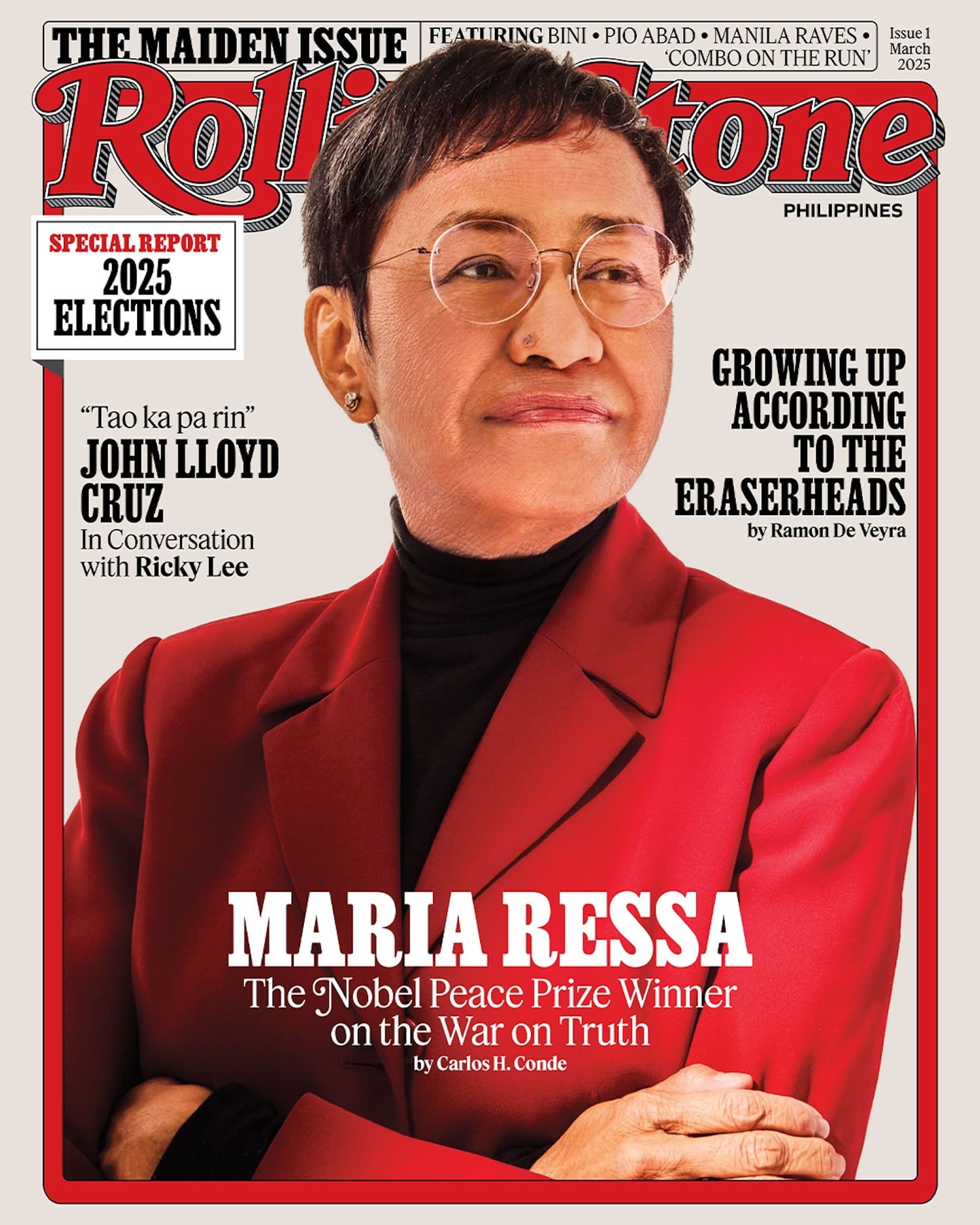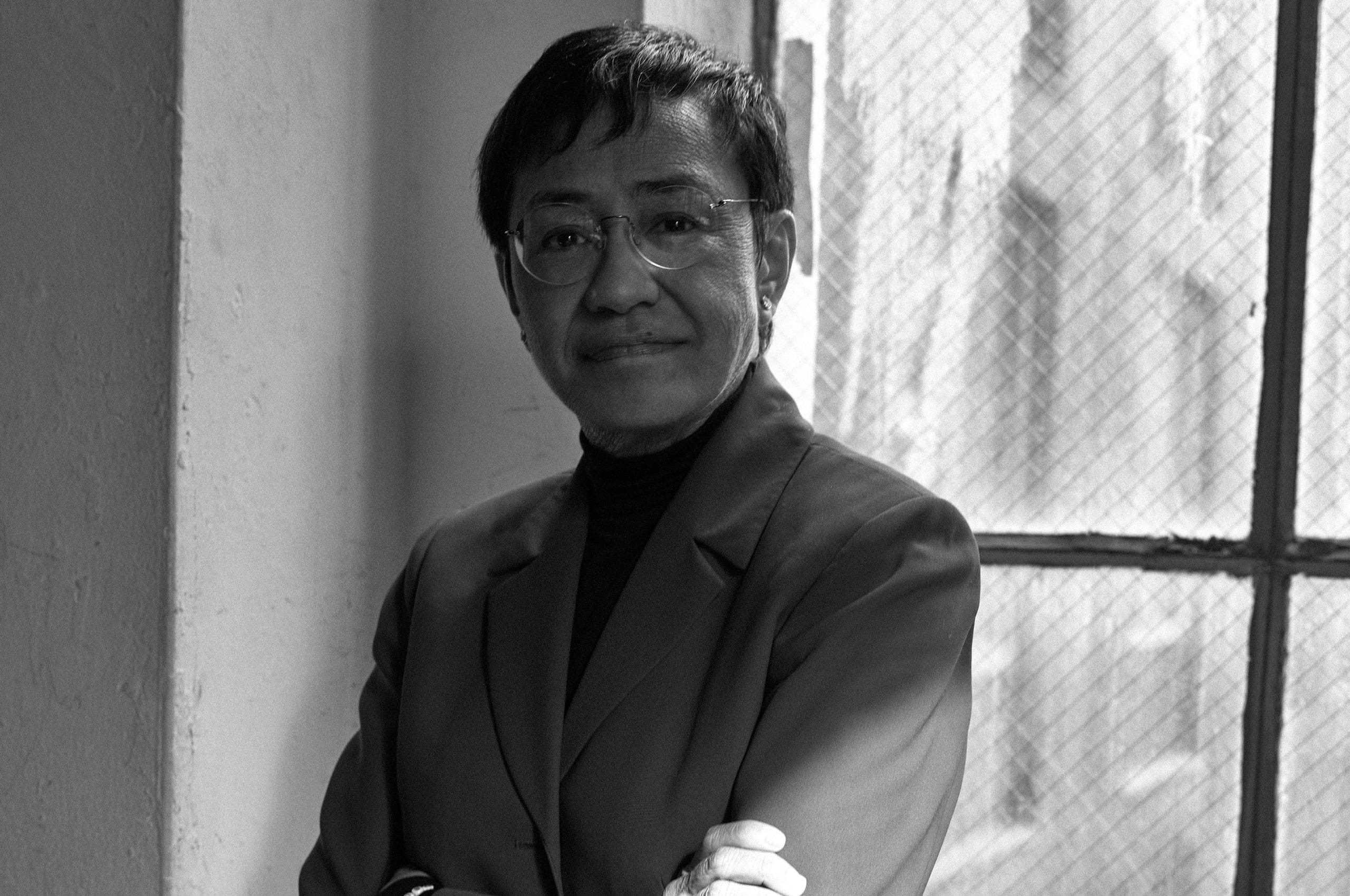“Journalism could die this year,” Rappler CEO Maria Ressa says matter-of-factly. Coming from someone who goes around the world, Nobel Peace Prize in hand, to preach the values of journalism, fact-checking, and community, it is a startling declaration — cold even because Ressa may have uttered it a thousand times. The phrase will probably become as widely quoted as her “a thousand cuts” characterization of what she and her colleagues at Rappler went through under former President Rodrigo Duterte beginning in 2016, that annus horribilis of human rights and press freedom in the Philippines.
But it also underscores the gravity of what she has been dealing with all these years because Ressa is on a mission. This has always been evident in the way she does her journalism (she even defines journalism, in itself, as a mission) and translating her reportage and insights into books that try to illuminate the dark crevices of the world. A common thread runs through these books: terrorism — terrorism of the physical kind in Seeds of Terror (2003), the physical-digital kind in From Bin Laden to Facebook (2012), and the digital-political kind in How to Stand Up to a Dictator (2022). But hearing her vent against disinformation, nothing seems to terrify her more than terrorism by Big Tech. Technology-driven disinformation, in her view, obliterates not just facts but our ethics, our morality, and, to use a favorite phrase of hers, our shared reality.
“I live by a simple thing I learned when I was really young: Do unto others as you would have them do unto you,” she tells me during an hour-long conversation via Zoom from New York. It’s an ethos, she believes, that the world needs at the moment. If only the world had enough golden rule warriors.
“How do we find people of empathy? You know, the strong who should help the weak?” she bewails. This lack of empathy, this “lack of morality,” as she calls it, is part of the reason why “fear, hate, and anger” may seem triumphant in the age of Big Tech and re-elected U.S. President Donald Trump. Before I could raise my eyebrow, Ressa quickly adds, “Now I sound like I’m super-religious but I’m not.”
But she does sound super-religious. In her most recent public outing, she spoke in front of Pope Francis in the Vatican where she hammered on the usual themes surrounding disinformation and Big Tech, which she says, “gives very fragile men godlike powers and they do not have the empathy or wisdom of God.”

Faith — especially interfaith — has a role to play in all of this. The way Ressa tells it, the image she conjures is an epic, biblical battle between good and evil. As these extremely powerful forces slug it out, “we need to remember the goodness of human nature.” She adds, almost sheepishly, “Because when you live in this cesspool of hate, you need faith in humanity.”
But more than her being a Filipino Catholic, what is at play here is a pragmatic recognition of the power of faith to potentially put the world back on an even keel. Again, it sounds so biblical but also not entirely a bad, even misplaced, idea. Especially if you keep in mind that journalism — one of the bulwarks of modern democracy that is expected to protect us from the destructive surge of lies — is itself not only under systematic and relentless assault but is undergoing dramatic transformations that are shaking it, even destroying it, at its very core.
That’s why, Ressa repeats, “Journalism could die this year.”
It’s a grim prognosis from someone who professes such high hopes in faith and humanity but one that probably the world needs to hear because, more than a Nobel laureate’s execrations of our state of affairs, it’s a cry for help.
In this interview, Ressa explores not only how tech is changing the way people consume information but also how Big Tech powers the disinformation that is upending our lives and our democracy. She offers journalism and community building — the things she and her colleagues at Rappler have been doing — as potent antidotes to the poison Big Tech spews out.
Read the rest of the story in the first print issue of Rolling Stone Philippines. For more information, please visit Sari.Sari.Shopping.







